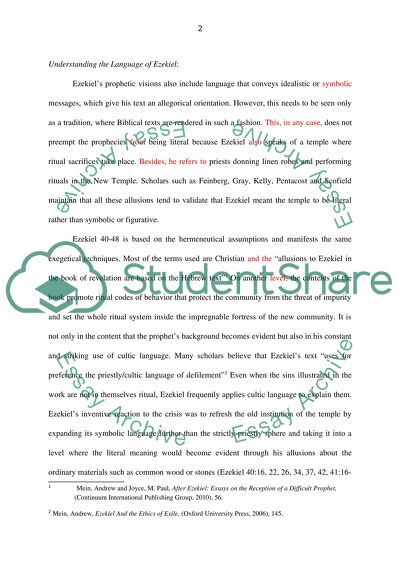Cite this document
(“Fulfillment of the prophecies and Promises of a new Temple in Ezekiel Research Paper”, n.d.)
Fulfillment of the prophecies and Promises of a new Temple in Ezekiel Research Paper. Retrieved from https://studentshare.org/religion-and-theology/1454591-ezekiel-a-survey-of-the-various-views-on-the
Fulfillment of the prophecies and Promises of a new Temple in Ezekiel Research Paper. Retrieved from https://studentshare.org/religion-and-theology/1454591-ezekiel-a-survey-of-the-various-views-on-the
(Fulfillment of the Prophecies and Promises of a New Temple in Ezekiel Research Paper)
Fulfillment of the Prophecies and Promises of a New Temple in Ezekiel Research Paper. https://studentshare.org/religion-and-theology/1454591-ezekiel-a-survey-of-the-various-views-on-the.
Fulfillment of the Prophecies and Promises of a New Temple in Ezekiel Research Paper. https://studentshare.org/religion-and-theology/1454591-ezekiel-a-survey-of-the-various-views-on-the.
“Fulfillment of the Prophecies and Promises of a New Temple in Ezekiel Research Paper”, n.d. https://studentshare.org/religion-and-theology/1454591-ezekiel-a-survey-of-the-various-views-on-the.


